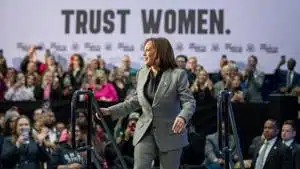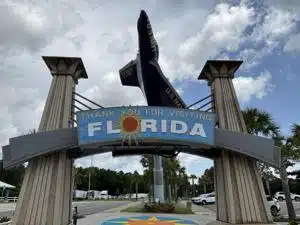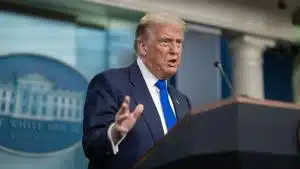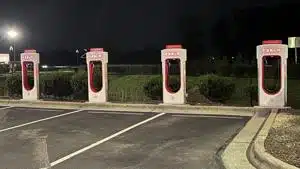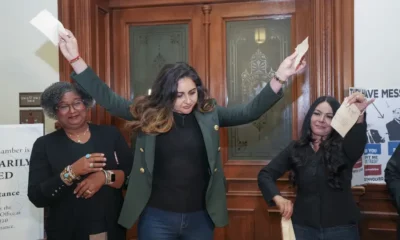(The Center Square) – In less than six months, hundreds of lawsuits have been filed opposing the policies of the second Trump administration – many of which have been brought by immigration advocacy groups, labor unions, minority advocacy groups and Democratic state leaders. But a case opposing President Donald Trump’s tariffs is strongly bipartisan and even leans conservative.
Alongside briefs from nearly 200 Democratic members of Congress and two research centers at New York University were briefs from the libertarian Cato Institute, the Goldwater Institute and Advancing American Freedom, a nonprofit founded by former Trump Vice President Mike Pence.
One came from a group of economists of varying political backgrounds yet united in their conviction that higher tariffs will only harm the economy. The group included a number of scholars from free-market think tank the American Enterprise Institute, as well as economists from Harvard and Stanford universities and the Massachusetts Institute of Technology.
AEI Senior Fellow in Economic Policy Studies Stan Veuger outlined the brief and brought the signatories together.
“I thought this was a valuable cause because the tariffs have had and will continue to have a very negative impact on the U.S. economy and our geopolitical position, by destroying all manner of mutually beneficial exchanges, raising the prices of inputs for firms, jeopardizing our friendship with Canada of all places,” Veuger told The Center Square in an email. “The longer they remain in place, the more damage they will do.”
The administration says the opposite. Though Trump has yet to impose the reciprocal tariffs at the heart of this case, the U.S. has levied a baseline 10% tariff on nearly all imports, 25% tariffs on most goods from Canada and Mexico and 50% tariffs on steel and aluminum, per several of his executive orders.
“Hundreds of Billions of Dollars in Tariffs are filling up the coffers of Treasury. The Tariff money has already arrived and is setting new records!” the president wrote on Truth Social in early July. “We are growing our way out of the Sleepy Joe Biden MESS that he and the Democrats left us, and it is happening much faster than anyone thought possible.”
The president has repeatedly talked about the revenue tariffs generate and how it will help balance or exceed any amount the Congressional Budget Office said the ‘one big, beautiful’ budget bill would add to the national debt.
In fact, the U.S. Department of the Treasury last week said that revenue from the tariffs helped the federal government show a $27 billion surplus in June, The Center Square reported.
Because tariffs are a tax on imported goods and the Constitution gives Congress the authority to tax and spend, critics argue the president doesn’t have the authority to administer such wide-ranging tariffs. The administration argues that Congress delegates broad powers to the president, including tariffs, “in the domains of foreign policy and national security,” especially in the case of a national emergency.
“Since 1941, Congress has authorized the President to ‘regulate importation’ of foreign goods whenever he declares a national emergency,” the defendants wrote in a motion to the court.
Trump declared national emergencies in his executive orders introducing new tariffs.
“I, DONALD J. TRUMP, President of the United States of America, find that underlying conditions, including a lack of reciprocity in our bilateral trade relationships, disparate tariff rates and non-tariff barriers, and U.S. trading partners’ economic policies that suppress domestic wages and consumption, as indicated by large and persistent annual U.S. goods trade deficits, constitute an unusual and extraordinary threat to the national security and economy of the United States,” reads Executive Order 14257. “I hereby declare a national emergency.”
In their brief, the economists take issue with Trump’s view of trade deficits as inherently harmful. A trade deficit occurs any time a country imports more than it exports from another country – whether of a specific good, like bananas or computer chips, or overall.
“The unequal distribution of trade across trading partners and sectors is mostly a consequence of efficient specialization,” they wrote. “Trade deficits are not only usual and ordinary, they are also generally harmless and not a ‘threat to the national security and economy of the United States.’”
While they acknowledge “trade deficits in particular industries could pose a threat to the United States,” they added that “such a threat would be industry- and perhaps country-specific and cannot be measured simply in dollars or percentages of a trade deficit.”
Trump has promised countries with companies that come to the U.S. to build or manufacture products that there won’t be any country-specific tariffs imposed on them as part of his plan to restore manufacturing jobs and lessen America’s dependence on other countries.
Moreover, they argue, tariffs won’t “reduce the overall trade deficit.”
Samuel Gregg, president of the American Institute for Economic Research and one of the brief’s signatories, said tariffs actually hurt the country imposing them just as much as the country subject to them.
“We often think of tariffs as being directed against and hurting the economic conditions of countries that they are directed against. But they hurt us just as much,” he said in an interview with The Center Square. “When you put tariffs on goods coming into the United States, you effectively increase the price because the businesses that are paying for the tariffs – they pass the costs onto consumers.”
“American consumers lose out every time tariffs are imposed upon another country’s imports … It hurts all 330 million American consumers.”
Gregg sees tariffs not only as economically harmful but politically damaging as well, further entangling corporate and government interests in ways that invite corruption.
“Tariffs encourage cronyism on the part of American businesses because when a tariff regime is put into place, businesses, especially large businesses, will lobby very hard for exemptions,” Gregg said. “They will also lobby for tariffs to be imposed upon particular types of goods that are entering the United States … to effectively deploy the power of the federal government against competitors from abroad.”
Kimberly Clausing, a professor of tax law and policy at the UCLA School of Law, told The Center Square in an email why she thinks economists of different political persuasions can find common ground on tariffs.
“Economists from throughout the political spectrum agree that tariffs are a particularly harmful tax since they are distortionary, regressive, and prone to abuse,” she said.
Tariff revenue has reached a record high, bringing in more than $100 billion this fiscal year.
The U.S. Court of International Trade found Trump’s “Liberation Day” tariffs to be unlawful, but the government appealed the case and it is now being reviewed by the U.S. Court of Appeals for the Federal Circuit.



